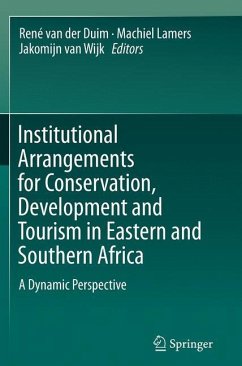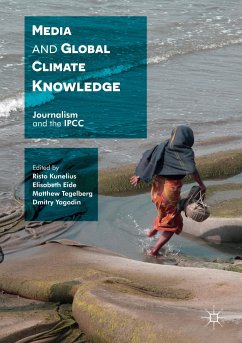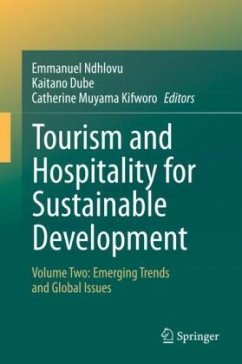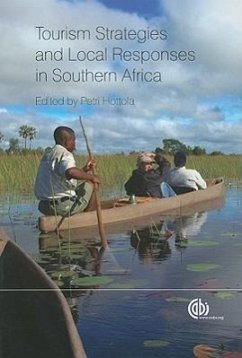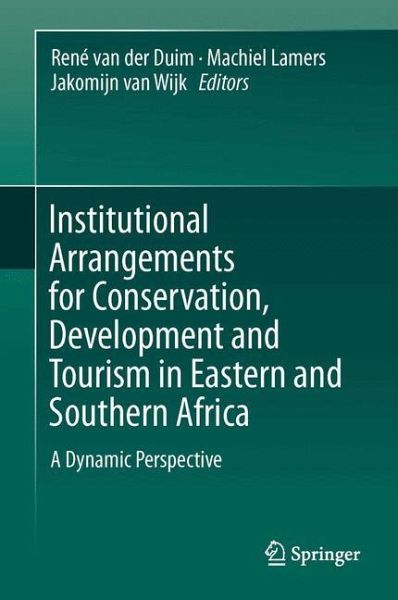
Institutional Arrangements for Conservation, Development and Tourism in Eastern and Southern Africa
A Dynamic Perspective
Herausgegeben: van der Duim, René; Lamers, Machiel; van Wijk, Jakomijn

PAYBACK Punkte
38 °P sammeln!
This book presents an overview of different institutional arrangements for tourism, biodiversity conservation and rural poverty reduction in eastern and southern Africa. These approaches range from conservancies in Namibia, community-based organizations in Botswana, conservation enterprises in Kenya, private game reserves in South Africa, to sport hunting in Uganda and transfrontier conservation areas. The book presents a comparative analysis of these arrangements and highlights that most arrangements emerged in the 1990s through either a decentralized or centralized change trajectory that was...
This book presents an overview of different institutional arrangements for tourism, biodiversity conservation and rural poverty reduction in eastern and southern Africa. These approaches range from conservancies in Namibia, community-based organizations in Botswana, conservation enterprises in Kenya, private game reserves in South Africa, to sport hunting in Uganda and transfrontier conservation areas. The book presents a comparative analysis of these arrangements and highlights that most arrangements emerged in the 1990s through either a decentralized or centralized change trajectory that was sponsored by donors. They aim to address some of the challenges of the 'fortress' types of conservation by combining principles of community-based natural resource management with a neoliberal approach to conservation, evident in the use of tourism as the main mechanism for accruing benefits from wildlife. The book illustrates the empirical relevance of these novel arrangements by presenting their growth in numbers and discuss how these arrangements differ in their form. With respect to the conservation and development impacts of these arrangements, we show that they have secured large amounts of land for conservation, but also generated governance challenges and disputes on tourism benefit sharing, affecting the stability of these arrangements to generate socioeconomic and conservation benefits.





